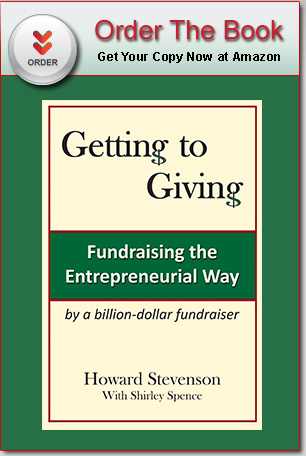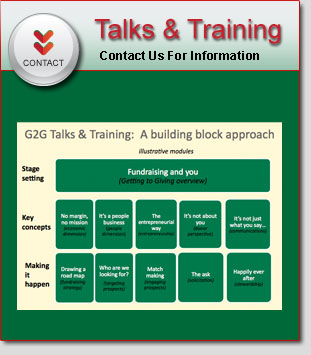 “How can you do fundraising? It’s so unpleasant.” I’ve been asked that question many times.
“How can you do fundraising? It’s so unpleasant.” I’ve been asked that question many times.
Many nonprofit volunteers and directors say they hate asking people – especially their peers – for money. They feel like they’re in unfamiliar, even hostile territory. And for some people, asking for money feels like begging, and no one wants to be a beggar.
My response is that I’m proud of the fundraising work I do. I’m not asking for myself. I’m asking for a cause I believe in. And I’m helping donors accomplish their philanthropic and personal goals. I wouldn’t do it otherwise. So, there are two questions that I encourage you to ask yourself: “Am I personally committed to this cause? Do I believe I am helping donors achieve their goals by contributing to it?”
The begging psychology often comes from the expectation that you’ll be turned down by many, some say two-thirds, of the people you approach. That doesn’t have to be the case. In fact, it signals poor fundraising. Much preparation is required before you get to the ask. Do you understand what motivates the prospect? What stage is she at, in her life? What can you offer, to solve a problem that is important to her? With that kind of deep understanding, you should be getting to a “yes” about 80% of the time.
I will often begin with “I’m asking you to share in something I believe is important.” But it isn’t, of course, that simple. In addition to talking about the right things, at the right time, your pitch needs to be buttressed by facts, and expressed in terms meaningful to the prospect. With Nature Conservancy people, I talk about vernal pools. With business people, I talk numbers. And, regardless of the audience, it sometimes involves more than talk. It may require show-and-tell, to really excite a prospect.
Being comfortable with fundraising is partly a matter of knowing your personal style. I can’t understand how one of my friends can spend hours participating in a phonathon. Personally, I like face-to-face interactions, where I can read people and their reactions. During Harvard Business School’s Capital Campaign, I had over 1,000 face-to-face meetings with prospects. That said, I have a hard time doing cold calls, with no background information about the person. I was fortunate to have the support of an excellent development staff at HBS, who kept me informed and on track.
There are times when fundraising volunteers or nonprofit executive simply can’t get comfortable “making the ask.” Faced with this problem, one development officer said to the organization’s president: “You set it up. I’ll say the words.” The teaming, which required trust on both sides, worked beautifully. Roles also can vary depending on the prospect, and over time. It’s important to be clear on who has what role, when. That may include having no role.
At least two mega-million dollar donors that I cultivated on behalf of Harvard University had no interest in meeting the school’s President, a source of great consternation to many. The donors weren’t interested in hierarchy; they were dying to meet the academic leaders they were being asked to sponsor. My role diminished slightly during the solicitation process as well. I might become more of a facilitator, as the project and proposal took shape. I didn’t mind, so long as the check arrived with the right number of zeros.
Have I persuaded you that fundraising is not begging, and that you can be a valuable contributor to your cause, through fundraising? I hope so!



